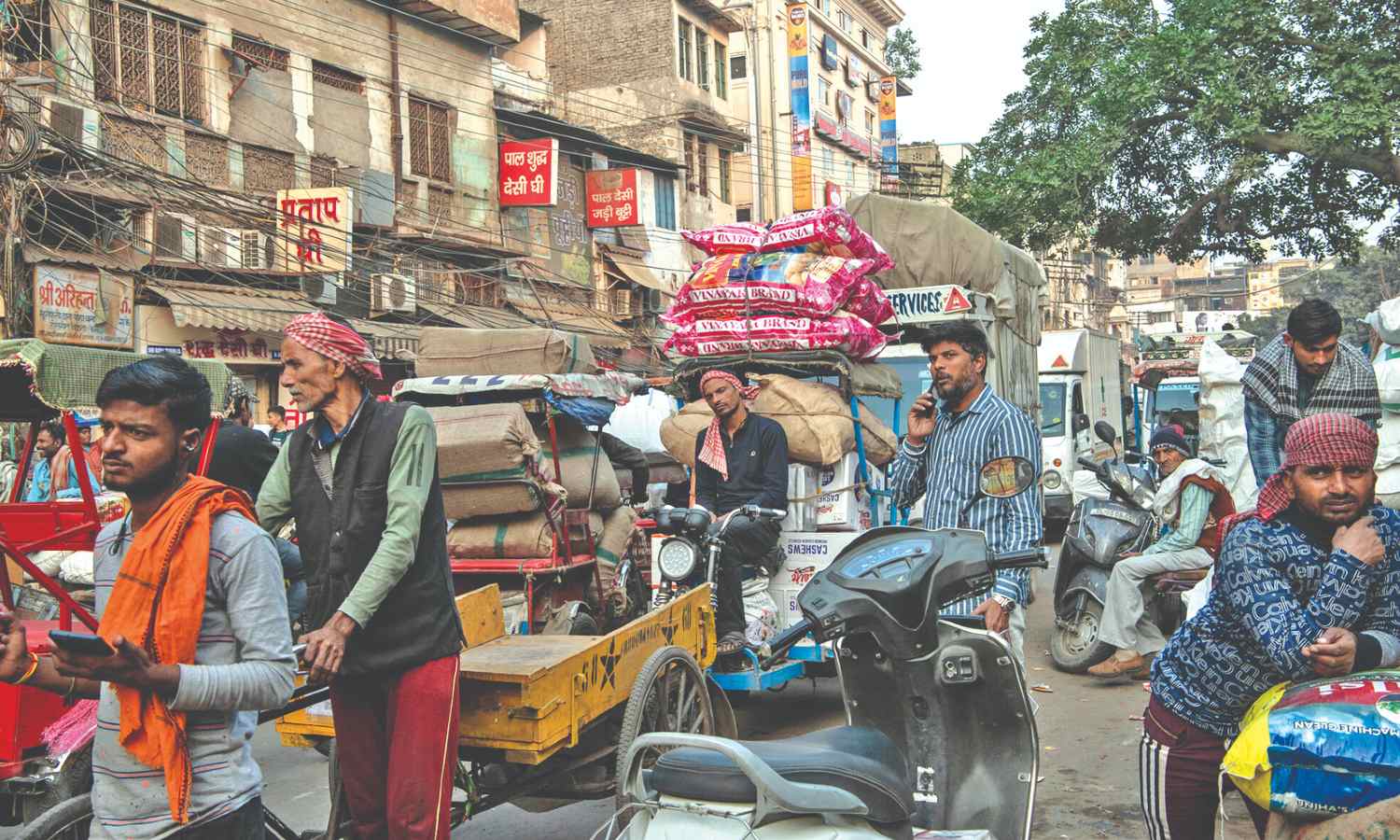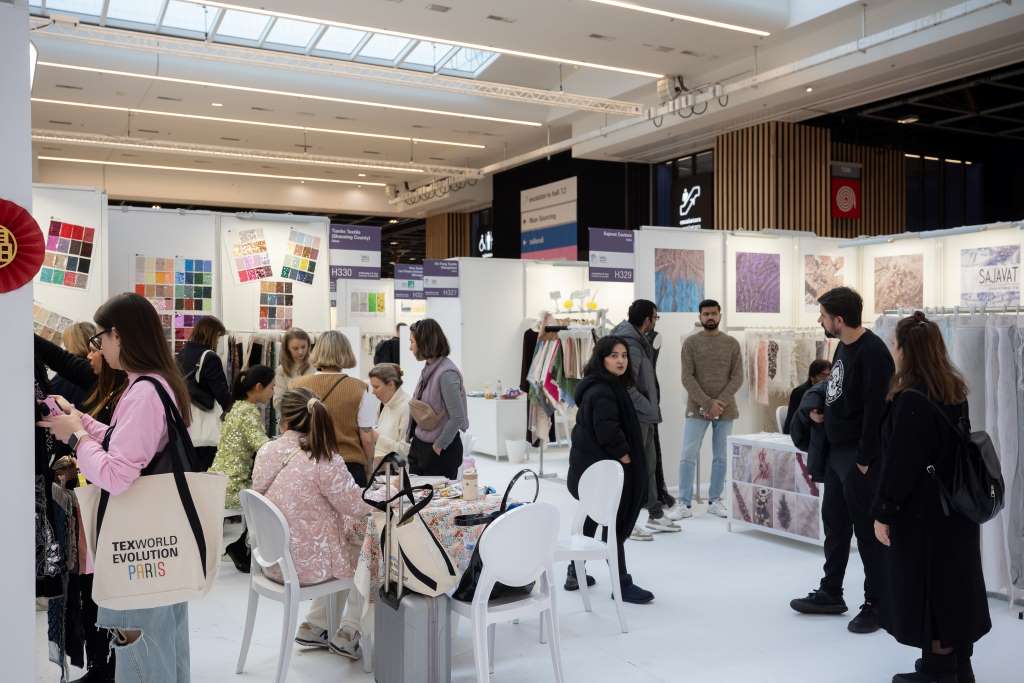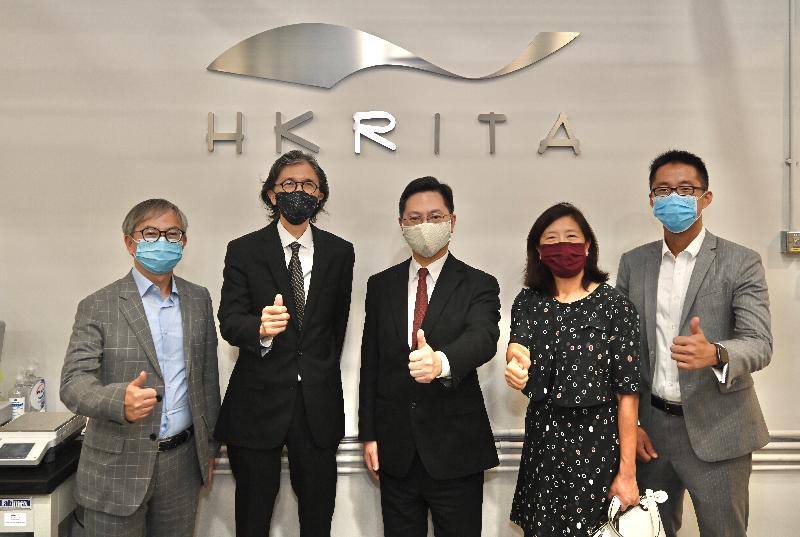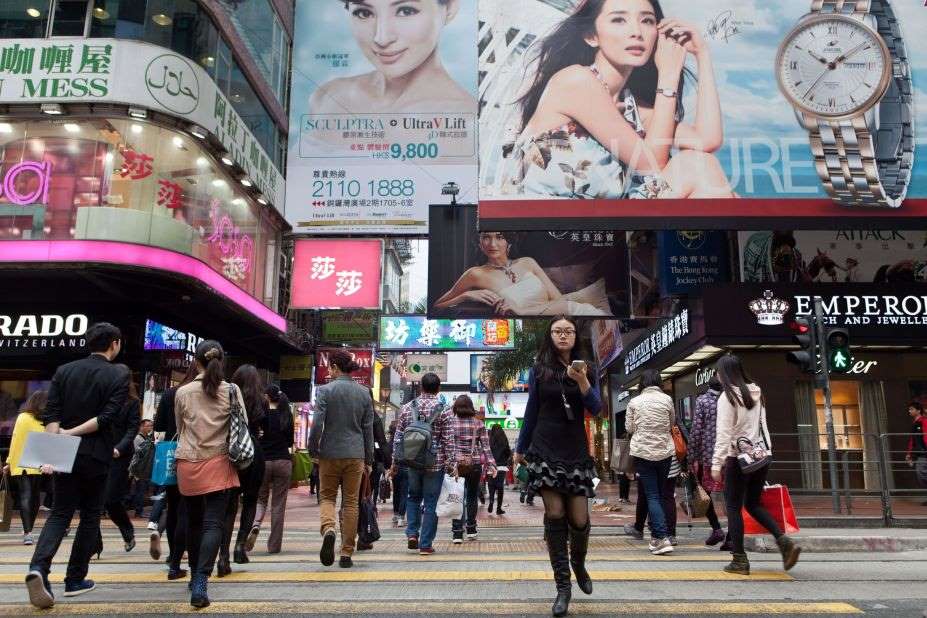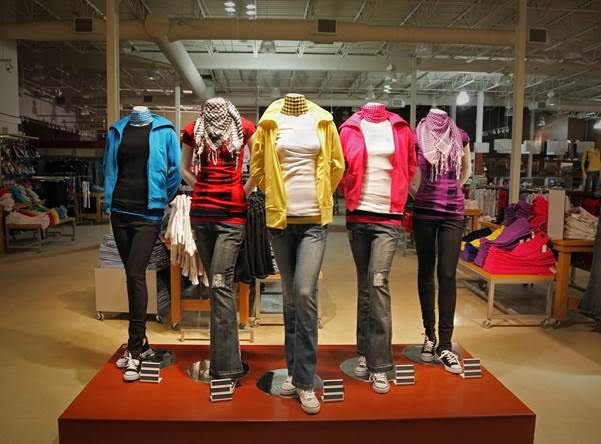FW
A pioneering sustainable fashion brand based in Los Angeles, Reformation has unveiled a new swimwear collection made from Evo bio-based yarn by Fulgar, a renowned Italian manufacturer specialising in high-performance synthetic fibers. This launch marks another significant step towards Reformation's overarching mission of democratising sustainable fashion.
Combining vintage-inspired styles with responsible business practices, Reformation releases bi-weekly, limited-edition collections both online and across its global retail locations. Every aspect of its operations integrates sustainability, culminating in two pivotal goals: achieving Climate Positive status by 2025 and Circular operations by 2030
The partnership with Fulgar underscores Reformation's commitment to environmentally responsible practices. Renowned for its dedication to develop eco-friendly textiles, Fulgar aligns seamlessly with Reformation's values. Kathleen Talbot, Chief Sustainability Officer, Reformation emphasises on the imperative to minimise reliance on fossil fuels in fabric production. By 2025, Reformation aims for less than 1 per cent of its sourcing to comprise synthetic materials, both virgin and recycled, she adds.
A game changer in sustainable textile innovation, Evo by Fulgar is derived from renewable sources such as castor oil plants and waste corn, Evo boasts comparable performance to traditional polyamide while boasting impeccable eco-credentials. Its versatility makes it suitable for various applications, from sportswear to swimwear, offering lightweight, stretchable, and breathable properties.
Daniela Antunes, Marketing Manager, Fulgar, notes, the company’s collaboration with Reformation is a testament to its dedication towards eco-conscious research and development. The company’s investment in R&D over the past decade has led to several breakthroughs in sustainable fibers like the launch of Q-Nova and Evo.
Established in the late 1970s, Fulgar has emerged as a global leader in the synthetic fiber sector, prioritising environmental sustainability and innovation. Its product range spans various textile sectors, from hosiery to sportswear, showcasing quality and uniqueness while honoring Italy's textile heritage.
Marking a significant milestone in its journey, Spanish fast fashion retailer Inditex returned to the Venezuela market by opening a Zara store under a franchise agreement.
Known for its portfolio of popular brands including Bershka and Pull & Bear, Inditex had shuttered all its operations in Venezuela in 2021 following a restructuring of its franchise agreement with local partner Phoenix World Trade.
However, earlier this year, the fashion conglomerate reaffirmed its commitment to the Venezuelan market with plans to reestablish its presence through a partnership with Grupo Futura.
Eagerly awaited by fashion enthusiasts, the relaunch of Inditex in Venezuela signifies not only a fresh beginning for the retailer in the country but also a resurgence of interest in global fashion trends among Venezuelan consumers.
According to a recent report by Market.us, the global maternity wear market is on track to hit a substantial value of around $37 billion by 2033, up from $21 billion in 2023, reflecting a steady growth rate of 5.8 per cent over the forecast period from 2024 to 2033.
According to report, the market is dominated by tops, which hold a significant 41.5 per cent share, followed by dresses and gowns, and bottom wear. Cotton is the primary material choice, commanding over 35 per cent of the market, followed by polyester and nylon. In terms of price range, the $100- $200 bracket leads with a 30.4 per cent market share, followed by below $100 and above $200 options. Hypermarkets/supermarkets are the preferred distribution channel, capturing 45.4 per cent of the market share, with online retail rapidly gaining ground.
Asia Pacific emerges as the most promising market for maternity wear globally, with substantial growth opportunities projected. The region holds a dominant 45 per cent share in 2023, driven by factors such as rapid urbanisation, industrial expansion, and increasing adoption of electric vehicles in countries like China, Japan, and South Korea. Additionally, favorable government policies, incentives promoting renewable energy adoption, and significant investments in infrastructure further bolster the market landscape.
In terms of product segmentation, tops lead the market, indicating their popularity among consumers, followed closely by dresses and gowns, with bottom wear also holding a notable share. Innerwear plays a crucial role in providing support and comfort during pregnancy, while other product categories such as outerwear, activewear, and nursing wear contribute to the market with smaller shares.
During a meeting with Hossam Heiba, CEO, General Authority for Investment and Free Zones (GAFI), a delegation from the Chinese Council for Textiles and Ready-made Garments expressed keen interest in investing $300 million towards developing an integrated textile city in Egypt.
As per the delegation, this proposed textile city will encompass all stages of the industry, leveraging Egypt's advantageous capabilities to potentially become a global textile hub.
Comprising leaders and representatives from 20 renowned companies and alliances specialising in various textile fields such as spinning, dyeing, and printing, the Chinese recognised Egypt's strategic importance as a market in the Middle East and Africa, and expressed a strong desire to contribute to its economic landscape.
Heiba underscored Egypt's dedication to attract more Chinese companies, particularly in the textile sector, acknowledging the sector's pivotal role in fostering economic growth and development. To facilitate this, Heiba presented the delegation with a range of investment opportunities in Egypt, showcasing potential sites such as Damietta, Sadat, and New Alamein. These locations are part of the government's initiative to establish new free and industrial zones, aimed at incentivising direct foreign investments.
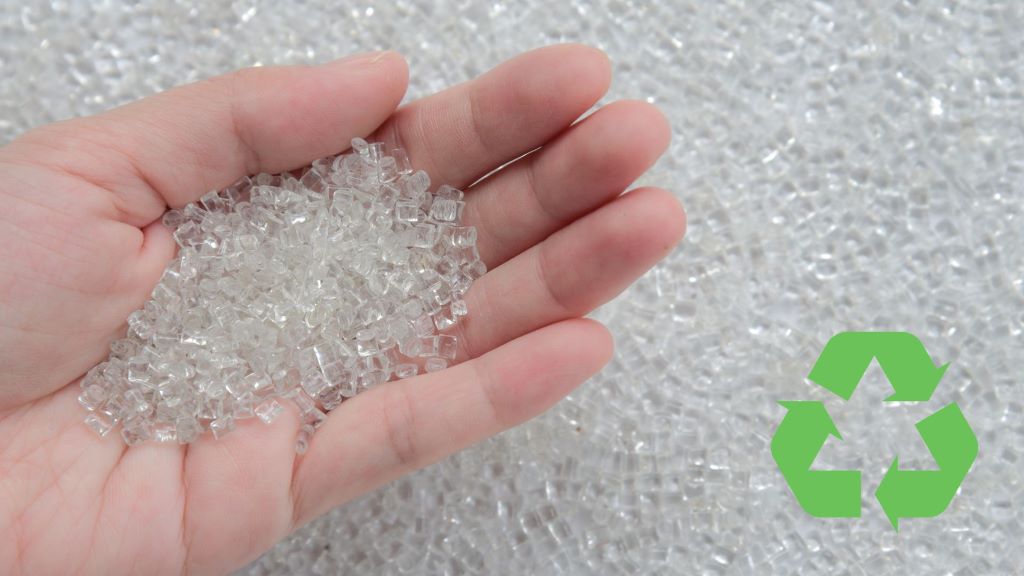
The fashion industry's long-standing reliance on recycled polyester from plastic bottles is facing scrutiny as its drawbacks become apparent. Initially celebrated as a sustainable solution, this approach is now being reassessed in favour of a more circular model.
Disrupting recycling loops
Brands like H&M, Patagonia, and Zara have championed recycled polyester from plastic bottles as a means to reduce reliance on virgin polyester and its high carbon footprint. However, this method disrupts existing bottle recycling loops, competing with closed-loop systems for beverage containers. Consequently, fewer bottles are recycled back into bottles, and the energy-intensive process of transforming bottles into polyester offsets some environmental benefits. Richard Wielechowski, Senior Investment Analyst, Planet Tracker points out, the biggest problem with bottles as a source for recycled polyester is that it takes bottles out of a circular loop in plastic packaging.
Landfill concerns
Despite its eco-friendly intentions, clothing made from recycled polyester often ends up in landfills, contributing to microplastic pollution and methane emissions. Synthetic fabrics, including recycled polyester, shed microplastics during washing, exacerbating plastic pollution in oceans and waterways.
Data points
• Synthetic fabrics like polyester account for 54 per cent of global fiber production, surpassing cotton.
• Only 1 per cent of clothing gets recycled.
• Unifi, a major recycled polyester producer, aims to convert the equivalent of 1.5 billion old T-shirts into new polyester yarn by 2030.
Embracing textile-to-textile recycling
Recognizing the limitations of bottle-to-clothes recycling, the fashion industry is turning towards textile-to-textile recycling as a more sustainable alternative. H&M's $600 million investment in Syre, a startup pioneering textile-to-textile recycling, signals a significant shift in strategy. Syre aims to establish large-scale plants capable of processing vast quantities of used clothing, thereby closing the loop on textile waste.
Meanwhile leading brands like Zara from Inditex and Puma are also embracing textile-to-textile recycling, partnering with companies like Ambercycle. This collaborative approach marks a departure from bottle-based recycled polyester production.
Overcoming challenges
Despite the promise of textile-to-textile recycling, challenges persist, particularly regarding microplastic pollution. Scalability is also an issue as the current infrastructure needs significant expansion to handle the industry's massive waste stream.
However, efforts to minimize fiber release during washing and develop filtration systems for washing machines are underway to address the issue of microplastics. The establishment of large-scale textile recycling infrastructure remains in its early stages, highlighting the need for industry-wide collaboration to ensure sufficient capacity.
The broader impact
The transition to textile-to-textile recycling will significantly enhance the fashion industry's sustainability efforts by reducing reliance on virgin polyester and minimizing landfill waste.
Increasing consumer demand for sustainable practices, coupled with government regulations like the EU's Extended Producer Responsibility (EPR), are driving this shift. Brands face mounting pressure to adopt sustainable solutions, making textile-to-textile recycling an attractive option.
A new narrative for sustainable fashion
While recycled polyester from bottles played a role in raising awareness about sustainability, the fashion industry is now embracing a more circular approach centered on textile-to-textile recycling. This shift, combined with efforts to address microplastic pollution, heralds a brighter future for sustainable fashion.
Blending vintage nostalgia with modern innovation, Orta’s AW 25/26 collection pays homage to the timeless allure of denim.
Divided into two distinct lines, Memory Lane and Retro Flex, Orta's latest collections reimagine classic denim styles infused with contemporary stretch and eco-friendly performance. The Memory Lane range celebrates the transformative decades of the '50s, '70s, and '80s, where denim served as a symbol of liberation and individuality.
Blending retro aesthetics with modern sensibilities, the Memory Lane collection channels themes of sustainability and inclusive fashion. The 80s Campus line, featuring heritage stripe textures and luxurious materials like wool denim and cashmere sateen, offers a nostalgic reinterpretation of Ivy League elegance fused with contemporary refinement. It embodies a lifestyle of understated luxury, emphasising durable denim that transcends fleeting trends.
The Memory Lane range also introduces a new, long-lasting black denim engineered for exceptional laser performance and rapid fade, echoing the rebellious ethos of tattoo and biker subcultures.
Meanwhile, Retro Flex range celebrates the vibrant energy of bygone eras, from the carefree '50s to the soulful '70s, infusing vintage charm with modern comfort and versatility. The collection exudes a sense of liveliness and audacity, with boldly flared silhouettes and eclectic styles that resonate with the enduring spirit of the '70s Hippie Heart.
In a world filled with uncertainty, consumers seek solidarity and self-expression through fashion, gravitating towards eclectic and vibrant styles that echo the rebellious spirit of past generations. The Glory Days 50s denim line pays homage to the rugged individualism of rodeo rebel cowboycore, combining vintage stretch with authentic character and hints of glamor for an effortlessly stylish look. Oktay Okurglu,Director - Sales & Marketing and Product Development, Orta, emphasises the universal appeal of rebellion and self-expression inherent in denim.
He says, by pushing the boundaries of modern vintage, Orta aims to create enduring denim memories that reflect the spirit of today's self-expressive, creative individuals.
A prominent player in the Indian textiles industry, Welspun Living reported a 16 per cent rise in consolidated net profit to Rs 146 crore in the fourth quarter ended March 31. This company also recorded a 19 per cent increase in revenue, reaching Rs 2,617 crore for the quarter.
For the entire FY 2024, Welspun Living's total income increased to Rs 9,825 crore with net profit rising to Rs 681 crore. Dipali Goenka, Managing Director and CEO, Welspun Living emphasises on the company's sustainable growth as EBITDA increased by 73 per cent to reach 15.4 per cent during FY24.
Despite challenges in the retail market, Welspun Living's domestic retail segment demonstrated resilience throughout the year. The company's flagship brand, 'Welspun,' expanded its presence to over 600 towns and 20,000-plus stores. This expansion contributed to the brand's highest-ever revenues in FY24.
A specialist in home textiles, Welspun Living offers a diverse range of products such as bed sheets, bath linen, and curtains under its private labels. With its robust performance and strategic growth initiatives, the company maintains a strong foothold in the home textiles segment.
Renowned for its edgy and unique fashion, AllSaints has recently joined the ranks of premium brands at the Silverburn Shopping Centre in Glasglow. Alongside names like Flannels, Rituals, and The White Company, this addition played a significant role in driving Silverburn’s footfall to over 15 million for the first time last year, underscoring the appeal of its offerings.
Visitors to Silverburn can now anticipate finding AllSaints’ signature style staples, ranging from leather jackets, jeans, and hoodies to patterned dresses and classic white t-shirts, along with a selection of accessories.
Frankie Mallinson, Retail Director, AllSaints, states, the latest store at Silverburn will unveil the brand’s ‘Access all Areas’ collection for 2024. The brand has also retained its core collection featuring iconic leathers and bold dresses.
David Pierotti, General Manager, Silverburn, affirms the retailer’s commitment to delivering a top-tier retail and leisure experience for all guests. He comments, attracting renowned brand names like AllSaints enables Silverburn to provide an exceptional shopping and entertainment environment.
The 16th edition of the Bangladesh Denim Expo aims to redefine the essence of denim by embracing new technologies and forward-thinking approaches.
To be based on the theme ‘Reimagine,’ the event, from May 06-07, 2024 in Dhaka, the expo will showcase the latest innovations and trends in the denim industry.
According to Mostafiz Uddin, Founder and CEO, Bangladesh Apparel Exchange (BAE), signifying a departure from conventional norms, the theme, ‘Reimagine’ explores new territories to create a visionary and transformative denim experience.
The expo aims to revolutionise every aspect of the denim production from sustainable practices to cutting-edge design techniques.
With over 60 exhibitors from 11 countries including Bangladesh, India, China, Pakistan, Turkey, Italy, France, Spain, Switzerland, Vietnam, and Japan, the event promises a diverse array of participants representing various segments of the denim industry. These include fabric mills (both denim and non-denim), garment manufacturers, washing laundries, accessories and trims suppliers, chemical companies, machinery and technology providers, as well as logistics firms.
Among the participants are notable names such as Archroma Management LLC, Artistic Milliners, Bluesign Technologies AG, Denim Solutions, etc, showcasing their latest products, innovations, and sustainable practices.
Serving as a platform for industry stakeholders to shape the future of denim, the Denim Expo continues to be a driving force in reshaping the global denim landscape.
The Board of Directors of Salvatore Ferragamo SpA, the parent company of the Salvatore Ferragamo Group, convened under the leadership of Leonardo Ferragamo, Chairman, reaffirmed the appointment of Marco Gobbetti as the Chief Executive Officer of the Company.
Gobbetti's tenure will extend throughout the current term of the Board of Directors, concluding with the Shareholders' Meeting slated to approve the financial statements for the year ending December 31, 2026. Additionally, the Board granted Gobbetti powers consistent with those he previously held, including his role as General Manager of the Company.
Furthermore, maintaining continuity with their previous mandates, the Board authorised proxies to Leonardo Ferragamo Chairman and Angelica Visconti, Vice-Chairman Angelica Visconti. The Board's forthcoming meeting on May 9, 2024, will entail a review of the independence criteria outlined in the Consolidated Law on Finance and the Corporate Governance Code of Borsa Italiana S.p.A. Directors who declared their independence upon candidacy will undergo assessment, alongside the reconstitution of Committees stipulated by the Corporate Governance Code.
During the same session, subject to the favorable opinion of the Board of Statutory Auditors, Pierre La Tour, Group Chief Financial Officer, was appointed as the Manager responsible for preparing financial reports as per Article 154-bis of Legislative Decree No. 58 of February 24, 1998 ("TUF"). His appointment is effective April 24, 2024, and will last until the conclusion of the current Board's term.


